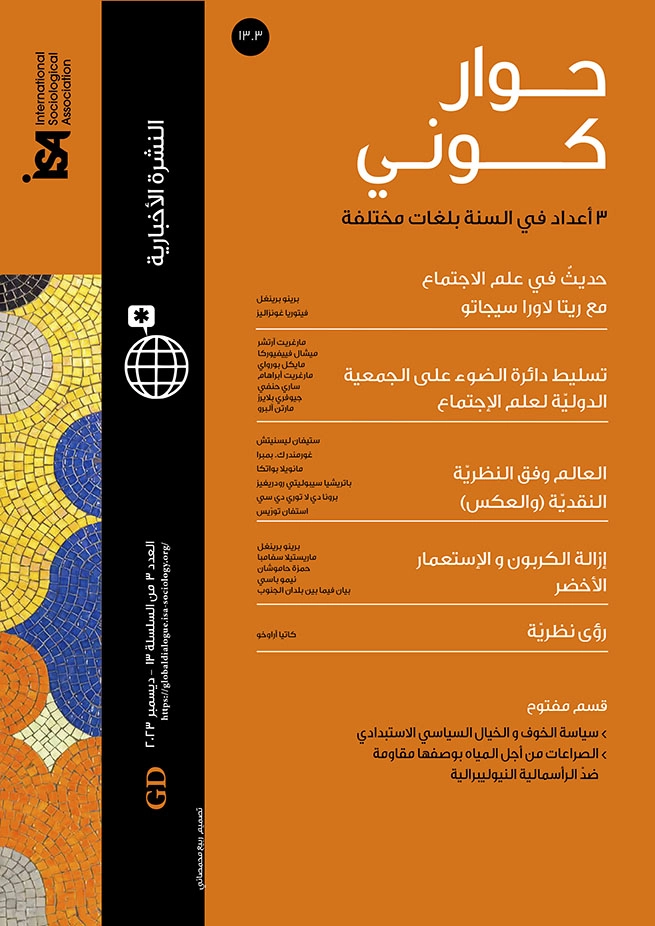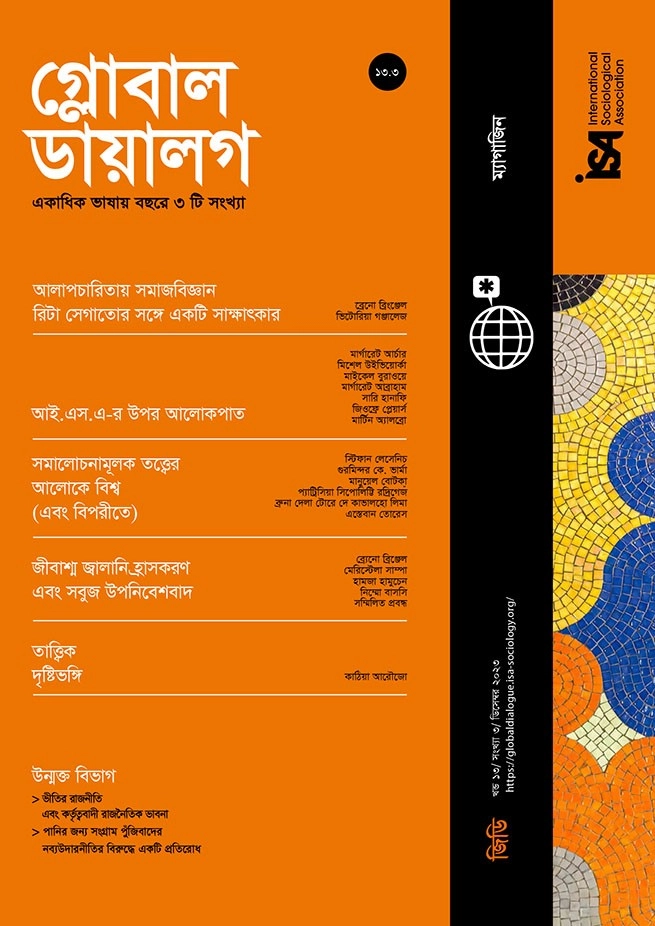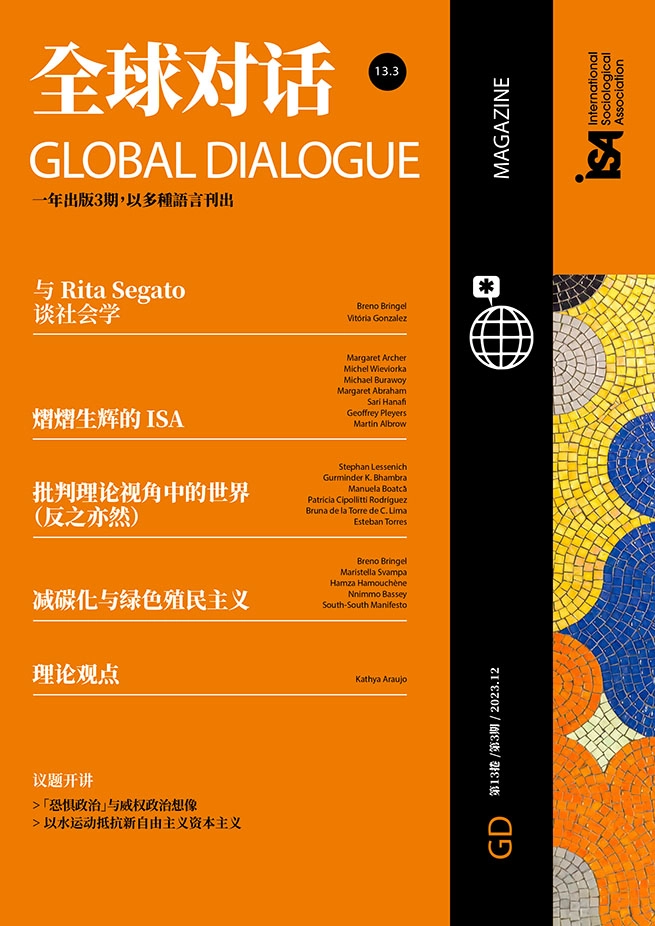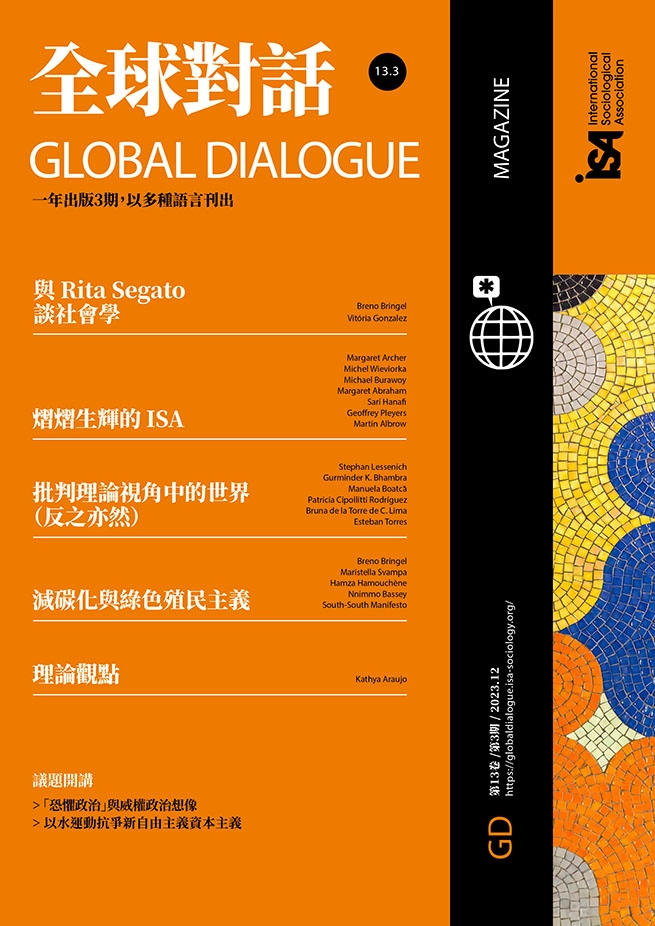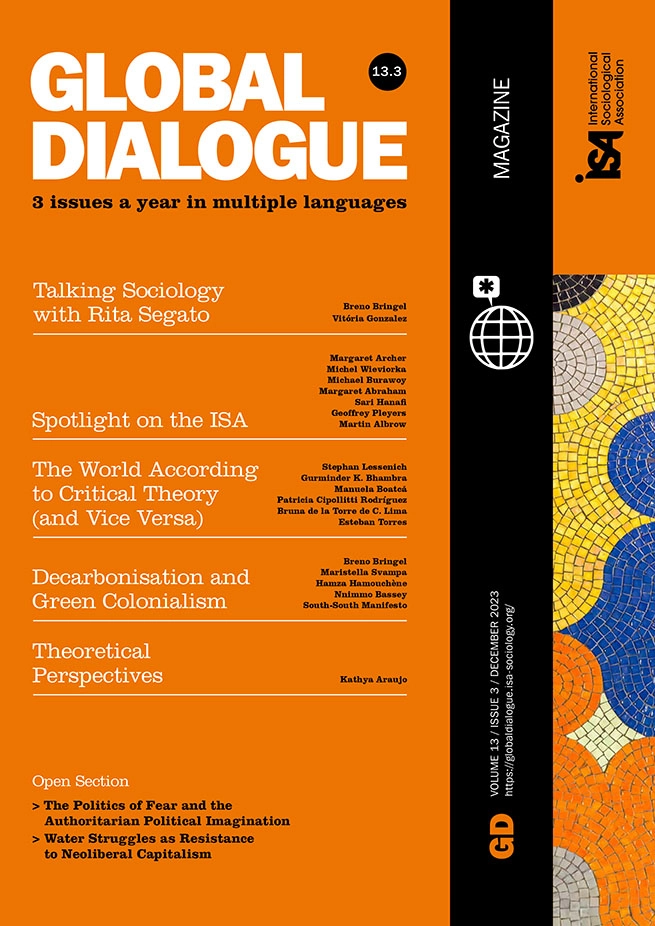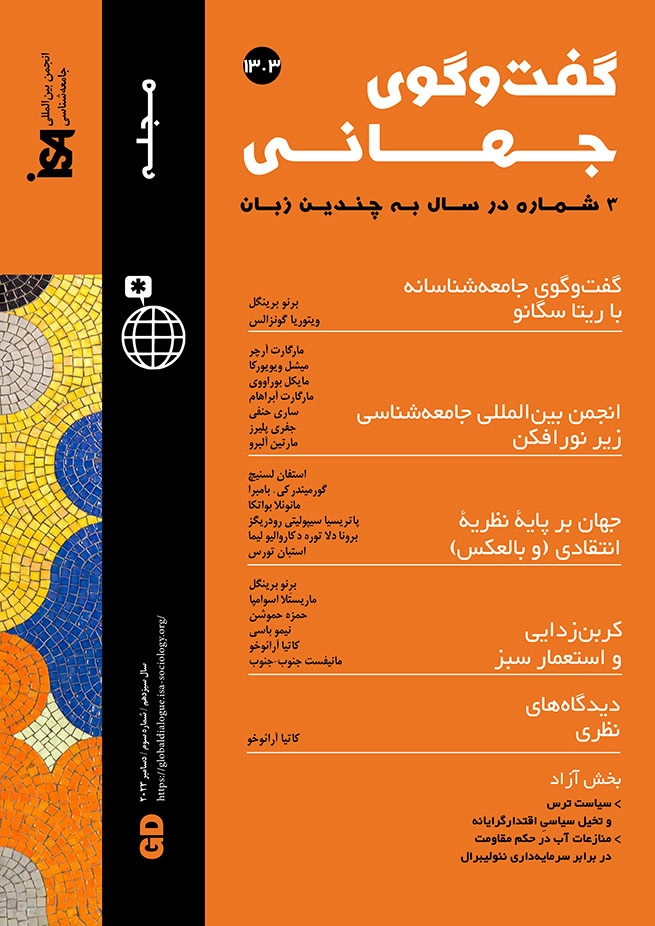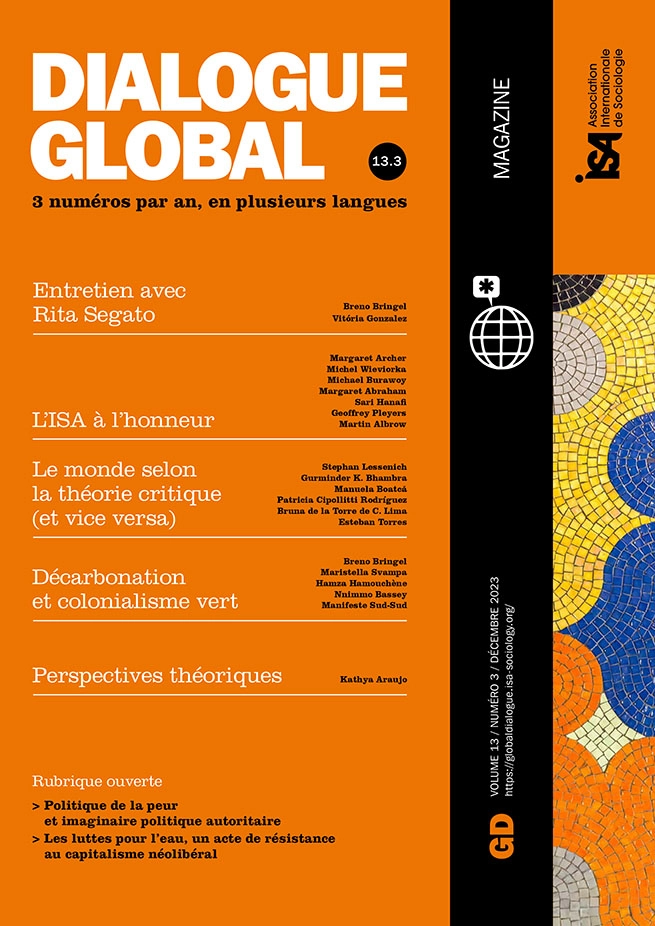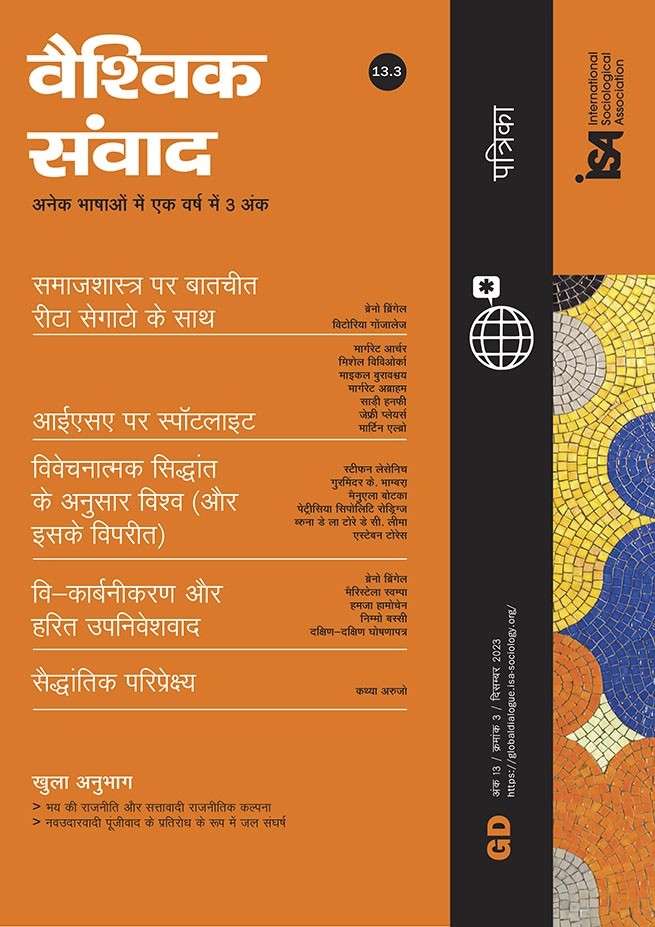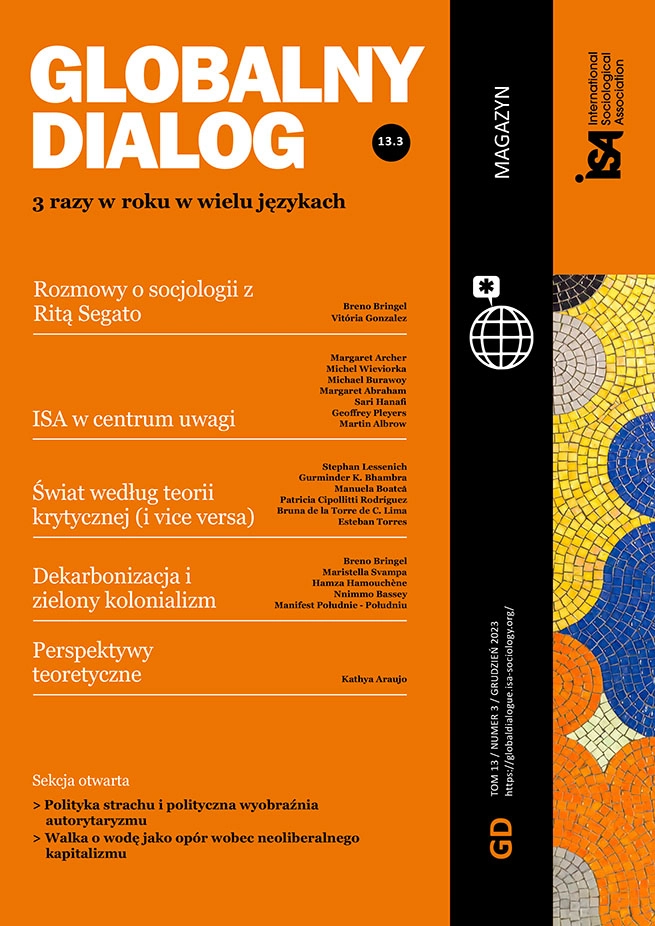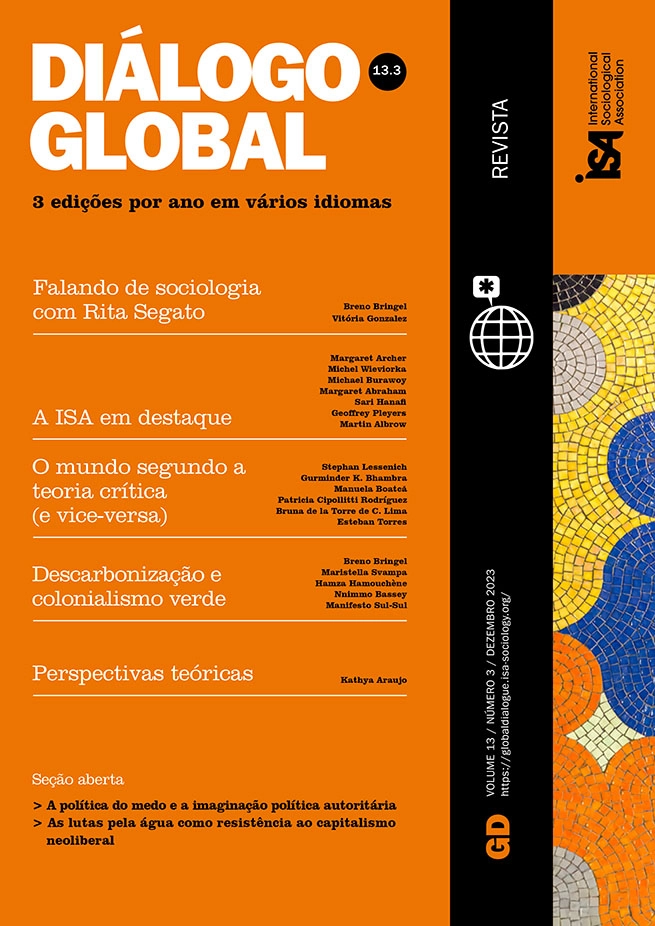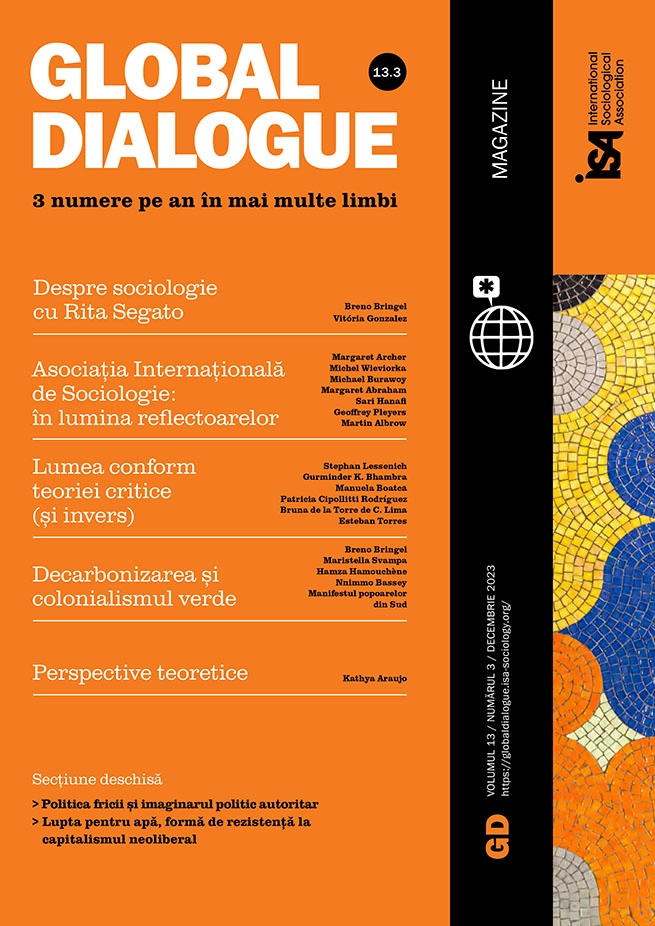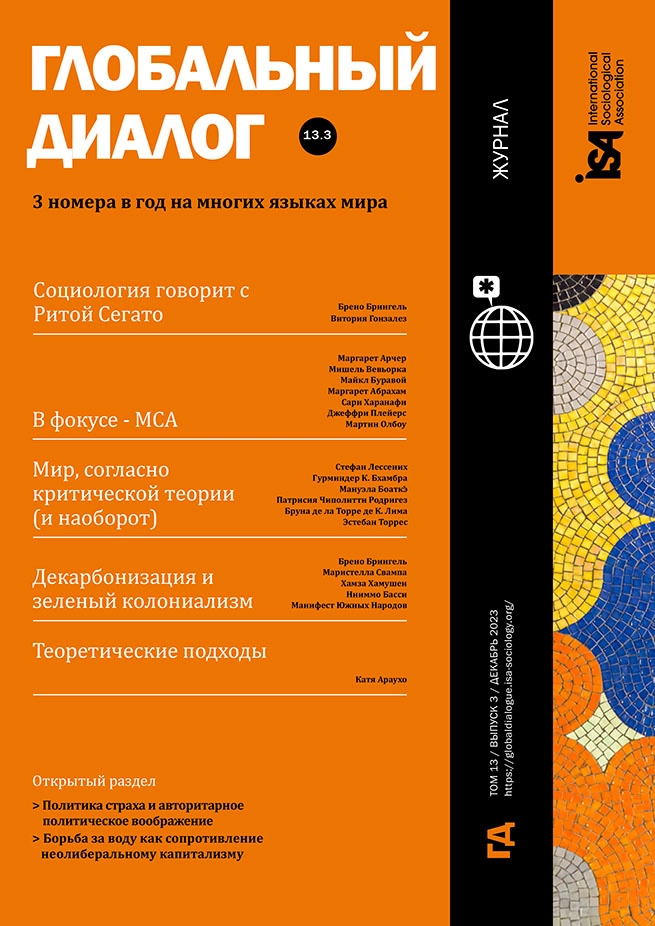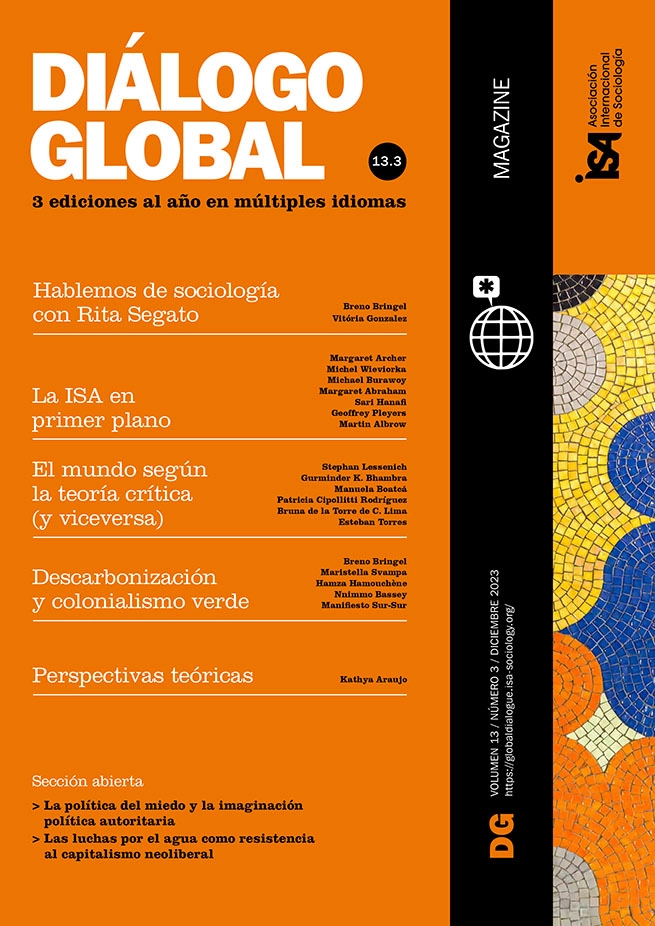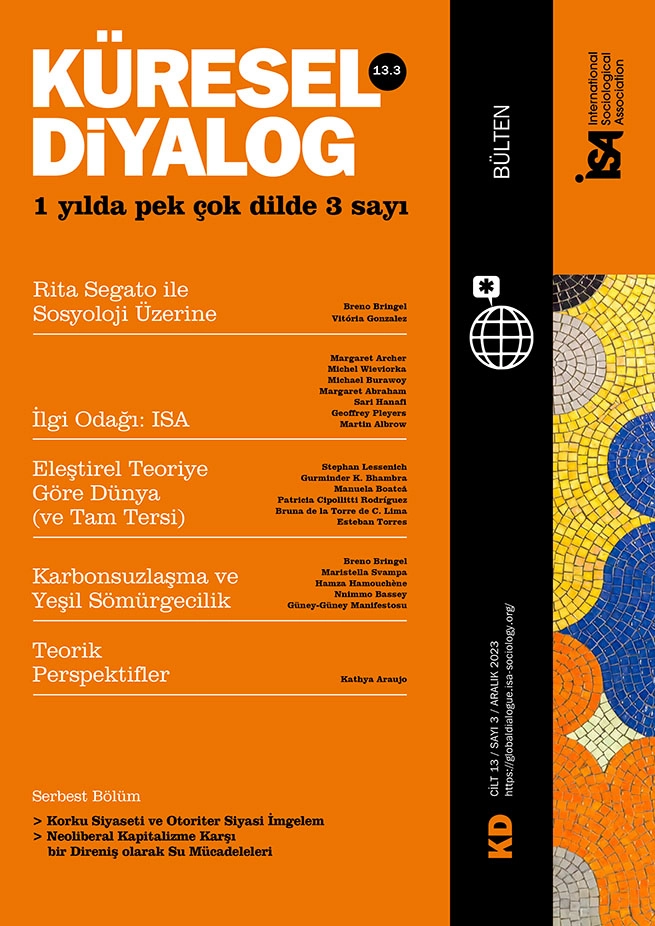Beyond Minoritisation and Coloniality An Interview with Rita Segato

November 19, 2023
Rita Segato is a prestigious Argentinean writer, anthropologist, and feminist activist. She is Emeritus Professor at the University of Brasilia and has received, in recent years, almost a dozen degrees honoris causa from European and Latin American universities as well as several other important awards. These include the Frantz Fanon Award from the Caribbean Association of Philosophy for her life’s work (2021) and Outstanding Personality of Culture from the Buenos Aires City Council (2019). She also holds the Rita Segato Chair in ‘Unsettling Thought’ at the National University of San Martín and the Aníbal Quijano Chair at the Reina Sofía Museum in Madrid. In addition to a distinguished academic career and innovative research on diverse topics such as race, ethnicity, nation, religion, gender, violence, and coloniality, she has made a vast contribution to human rights. For instance, she is co-author of the first affirmative action proposal to guarantee the entry of Black and indigenous students into higher education in Brazil (1999). She has also collaborated with various women’s organisations in Latin America and is an essential reference for the feminist movement. She recently published in English her book The Critique of Coloniality (Routledge, 2022). In September 2023, Rita Segato was interviewed by Breno Bringel and Vitória Gonzalez, editors of Global Dialogue.
Breno Bringel and Vitória Gonzalez (BB & VG): Your work and trajectory have been recognised recently worldwide. However, we believe that our readers from various parts of the world – such as Africa, Asia, the Middle East and even some regions of Europe – still need to get to know your work. How do you think your research contributions, primarily focused on Latin America, can be relevant in other contexts? How can it help boost global dialogues from the Global South?
Rita Segato (RS): Unfortunately, the major hub for the circulation of ideas is still the United States. The filtering of what is worth buying passes through the USA, and it is to this filter that most academic communities turn to see what is worth reading, which has been endorsed by the Global North’s screening. Validation comes from there, and that’s one of the empire’s tasks. On the other hand, there’s a lot of talk about the circulation of ideas in the universe of the Global South. I’m sorry, but I don’t believe in this self-imposed confinement. I feel closer to the masterful Peruvian thinker Aníbal Quijano, who said that, despite being from the South, he didn’t think about the South or for the South but for the world. The still colonial structure of the world is a planetary problem, and the need to consider and abolish it is also a global issue.
Regarding my work, I wish I could meet more African, Caribbean, Asian and Middle Eastern authors researching contemporary issues. Virtuality has opened up this possibility, although it hasn’t been fully utilised, and it’s still not the same as co-presence and co-corporality. But even if we think about dialogue with authors from the former colonies, we must always do so with fidelity to the idea that we are thinking and writing for the world. This way of thinking converges in my critique of minoritisation, i.e., the criticism of the place that multiculturalism gives to the ‘others’ in relation to the ontologically full subjects: women, Indians, Blacks, dissident sexualities, etc.
In my perspective, this place of political minority that thinks from itself, about itself and for itself must be destroyed. For example, if we, women, get to advance in our proposals, if patriarchy breaks down and decomposes, all powers’ towers are destabilised, and our antagonists know this very well. It’s because of the danger we represent that they put their flocks in the streets repeating nonsense like, for example, that ‘gender’ – which is an analytical category capable of accounting for the variety of cultural constructions of what a man and a woman are – is an ‘ideology’. These flocks placed in the streets to repeat slogans without understanding them are irrefutable proof of the extent to which the underestimated ‘minorities’ touch and threaten the world’s unequal structure.
BB & VG: If we could translate into all the languages of our magazine one of your works that has yet to be internationally disseminated, which would you recommend? Why?
RS: That’s a complicated question. The author never knows. It’s also tricky to answer because some of my texts address patriarchal oppression, others address racial oppression, and others the difference between ‘politics’ and ‘the political’ (in other words, my critique of the capture of the political by the state). Many essays are now in the form of interviews and even video recordings. I talk more and more and write less and less due to the effects of age and the urgency to make myself understood.
But in my penultimate book, titled Cenas de um pensamento incômodo (Scenes of Unsettling Thought), published in 2022 in Portuguese and in 2023 in Spanish, there are two lesser-known texts: “Refundar o feminismo para refundar a política” (Reinventing feminism to reinvent politics) and “Nenhum patriarcão fará a revolução: reflexões sobre as relações entre capitalismo e patriarcado” (No patriarch-boss will make the revolution: reflections on the relationship between capitalism and patriarchy). In my latest book, published in Spanish in Chile, titled Expuesta a la muerte (Exposed to Death), the very short preface “Encomio de la incertidumbre” (In Praise of Uncertainty) expresses my ideas very well.
There is also a book that is the foundation of all subsequent developments in my thinking. Although more recent ones have been or are being translated into English, German, French, Italian, Portuguese, and even Greek, this one hasn’t had the same luck: Las estructuras elementales de la violencia (The Elementary Structures of Violence). In this work, a key chapter, and a platform for everything I have thought about since, is “La estrutura de género y el mandato de violación” (Gender Structure and the Mandate of Rape).
To the critique of multiculturalism that I mentioned above, I dedicated several chapters of my book La Nación y sus Otros (The Nation and its Others); in particular, the chapter “Identidades Políticas / Alteridades Históricas: uma crítica a las certezas del pluralismo global” (Political Identities / Historical Alterities: a critique of the certainties of global pluralism). Also, in that book, I anticipate a critique of ‘politics’, which is becoming centripetal, internal, endogamous, and territorial in the sense of being closed in its own network of belonging.
BB & VG: Your work presents many exciting ways to explore the relationship between gender and coloniality. How can we confront today this historical mechanism that reinforces racism, colonialism, and gender violence in the context of the rise of the far-right worldwide?
RS: On the one hand, there is a reflection on the connections between racism, patriarchy and coloniality. That’s one theme. On the other hand, there is the question of the formations of contemporary fascism. If there is a strategy, a method, we could say, and a structure that allows us to identify fascist ideologies, it is that they are all based on the construction of some ‘other’ as the enemy. Fascism needs an enemy, a sacrificial victim, and a scapegoat so that power and its allies can achieve cohesion. Fascism, then, is built by creating the ‘other’. So, racialised people, women and sexual dissidents are easy prey for the role of this ‘other’. The legacy of the permanent structure of coloniality makes available what is spoken of as ‘the common enemy of society’. It’s only a small step because this constructed ‘other’ as a threat was already available. Demonising women, racialised people and sexual dissidents is very easy; they are already under suspicion due to the effect of the colonial structure of the world.
BB & VG: For several years, we thought that countries that had experienced historical memory processes and more robust human rights struggles, such as Argentina, would be more shielded from authoritarian setbacks. However, today, we also see a revisionist and, in some cases, denialist wave in Argentina. How do you assess this process?
RS: We must consider at least two aspects of Argentinean political life. First, the exteriority of state management in relation to the administered: the territory and the lives of the people, installed since the foundation of our states – what I call the ‘foundational error’, which will establish the permanent coloniality of management. Second, the distance between ‘politics’ (the actions and decisions derived from the state structure, with political parties, organised social movements and the factions and interests within them, with the orientation of their eminently centripetal, intestinal, endogamous action) and ‘the political’ (which circulates in society, weaves social relations, and effectively guides history).
In the case of Argentina, the right-wing vote seems to be a request for a ‘reboot’ of politics coming from sectors of society demanding a fairer distribution of protagonism and incidence in history. They perceive politics as captured within party labyrinths, abandoning the spaces truly inhabited by people and feel themselves treated like herds available to be led. This lack (or expropriation) of protagonism generates resentment, especially among young people. Added to this is the message that “you don’t exist; you don’t have a full life if you don’t live under the media spotlight”. There is an accumulation of resentment due to the promises of democracy and modernity that have never been fulfilled.
Democracy has never ceased to be a project of democracy. And modernity – equal opportunities, fraternity, freedom – has also never ceased to be a project of modernity. This accumulation of resentment and disappointment is used by anti-democratic political forces. So even those ‘rights’ achieved by bringing justice and judgment to those responsible for the Argentinian genocide seem distant today. They are today the business of a state whose management and configuration the majorities don’t participate in and don’t feel part of.
BB & VG: Is there a Feminist International nowadays?
RS: The idea of an ‘International’ is undoubtedly interesting because it points to a feminism that crosses borders, communicates, and unites through shared demands, slogans and banners. However, it runs the same risk as the distance I mentioned earlier between ‘the political’ and ‘politics’. Summits of ‘experts’ and orthodoxies can be created that damage the movement. The feminist movement will be pluralist, or it won’t be. It will be for a world without hegemony, or it won’t be. Because of the verticalism of Eurocentric feminism, parts of the movement in Africa have chosen to talk about ‘womanism’ rather than feminism. These are very different histories, with distinctive gender structures, struggles, and objectives shaped by these differences. When we see our common problems through the prism of differences, a feminist international can reach its rightful destination.
BB & VG: A last quick question: what do you think global sociology has to learn from the indigenous peoples of our continent?
RS: Precisely a politics that doesn’t generate this distance between ruling summits and their peoples and a politics that can imagine a plural world without objectifying Nature and bodies. A “historical project of bonds” that is alive and in tension with the “historical project of things”, these being very different imaginaries of what happiness is.

